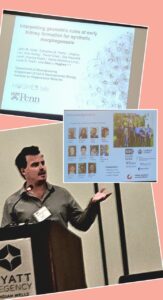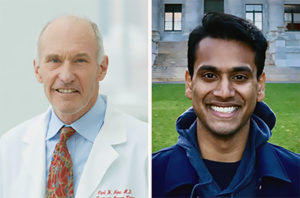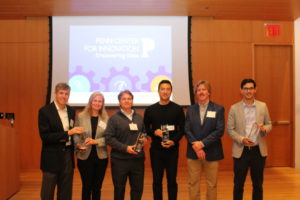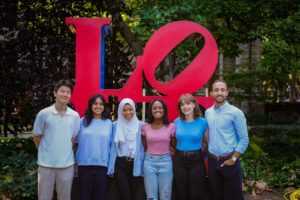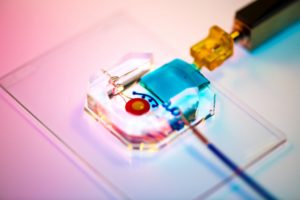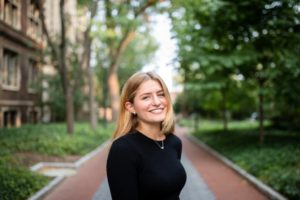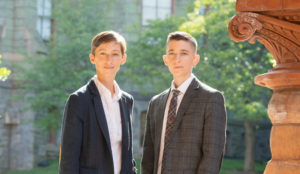by
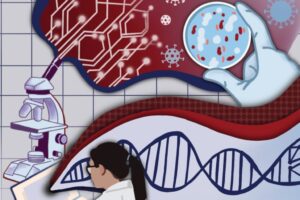
Penn Engineering’s newly established ASSET Center aims to make AI-enabled systems more “safe, explainable and trustworthy” by studying the fundamentals of the artificial neural networks that organize and interpret data to solve problems.
ASSET’s first funding collaboration is with Penn’s Perelman School of Medicine (PSOM) and the Penn Institute for Biomedical Informatics (IBI). Together, they have launched a series of seed grants that will fund research at the intersection of AI and healthcare.
Teams featuring faculty members from Penn Engineering, Penn Medicine and the Wharton School applied for these grants, to be funded annually at $100,000. A committee consisting of faculty from both Penn Engineering and PSOM evaluated 18 applications and judged the proposals based on clinical relevance, AI foundations and potential for impact.
Artificial intelligence and machine learning promise to revolutionize nearly every field, sifting through massive amounts of data to find insights that humans would miss, making faster and more accurate decisions and predictions as a result.
Applying those insights to healthcare could yield life-saving benefits. For example, AI-enabled systems could analyze medical imaging for hard-to-spot tumors, collate multiple streams of disparate patient information for faster diagnoses or more accurately predict the course of disease.
Given the stakes, however, understanding exactly how these technologies arrive at their conclusions is critical. Doctors, nurses and other healthcare providers won’t use such technologies if they don’t trust that their internal logic is sound.
“We are developing techniques that will allow AI-based decision systems to provide both quantifiable guarantees and explanations of their predictions,” says Rajeev Alur, Zisman Family Professor in Computer and Information Science and Director of the ASSET Center. “Transparency and accuracy are key.”
“Development of explainable and trustworthy AI is critical for adoption in the practice of medicine,” adds Marylyn Ritchie, Professor of Genetics and Director of the Penn Institute for Biomedical Informatics. “We are thrilled about this partnership between ASSET and IBI to fund these innovative and exciting projects.”
Seven projects were selected in the inaugural class, including projects from Dani S. Bassett, J. Peter Skirkanich Professor in the Departments of Bioengineering, Electrical and Systems Engineering, Physics & Astronomy, Neurology, and Psychiatry, and several members of the Penn Bioengineering Graduate Group: Despina Kontos, Matthew J. Wilson Professor of Research Radiology II, Department of Radiology, Penn Medicine and Lyle Ungar, Professor, Department of Computer and Information Science, Penn Engineering; Spyridon Bakas, Assistant Professor, Departments of Pathology and Laboratory Medicine and Radiology, Penn Medicine; and Walter R. Witschey, Associate Professor, Department of Radiology, Penn Medicine.
Optimizing clinical monitoring for delivery room resuscitation using novel interpretable AI
Elizabeth Foglia, Associate Professor, Department of Pediatrics, Penn Medicine and the Children’s Hospital of Philadelphia
Dani S. Bassett, J. Peter Skirkanich Professor, Departments of Bioengineering and Electrical and Systems Engineering, Penn Engineering
This project will apply a novel interpretable machine learning approach, known as the Distributed Information Bottleneck, to solve pressing problems in identifying and displaying critical information during time-sensitive clinical encounters. This project will develop a framework for the optimal integration of information from multiple physiologic measures that are continuously monitored during delivery room resuscitation. The team’s immediate goal is to detect and display key target respiratory parameters during delivery room resuscitation to prevent acute and chronic lung injury for preterm infants. Because this approach is generalizable to any setting in which complex relations between information-rich variables are predictive of health outcomes, the project will lay the groundwork for future applications to other clinical scenarios.
Read the full list of projects and abstracts in Penn Engineering Today.

